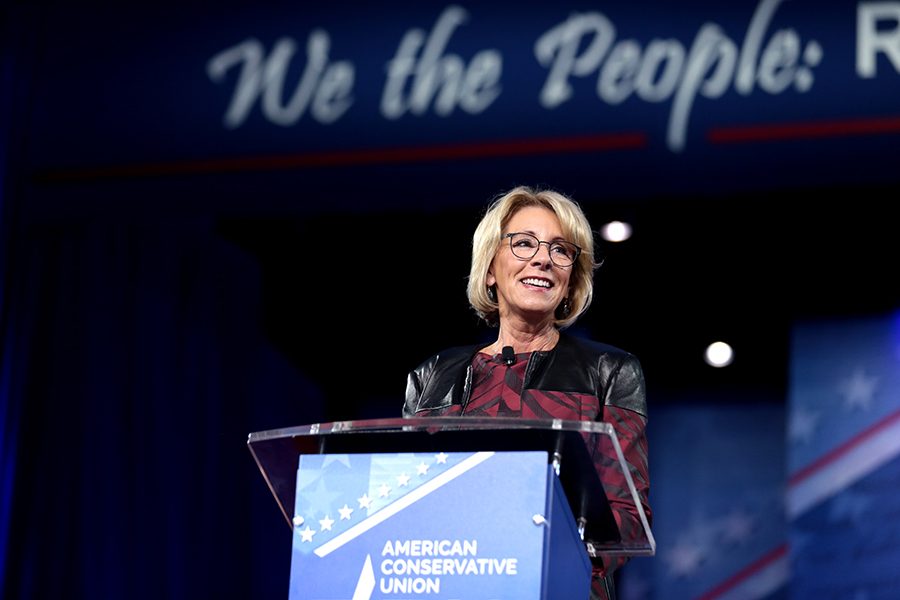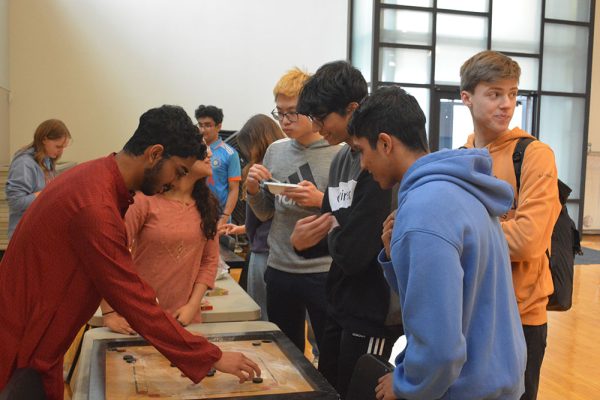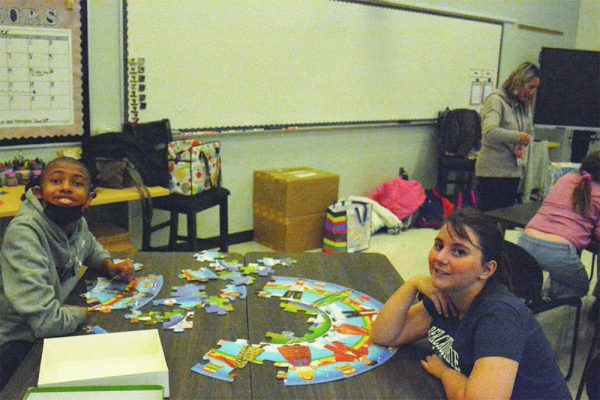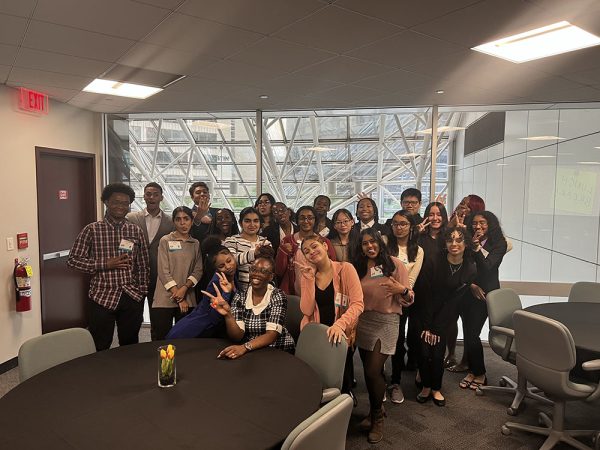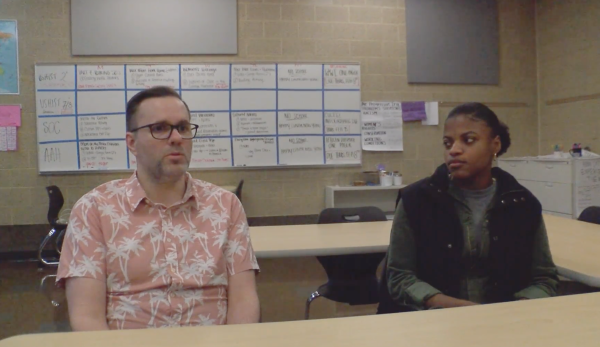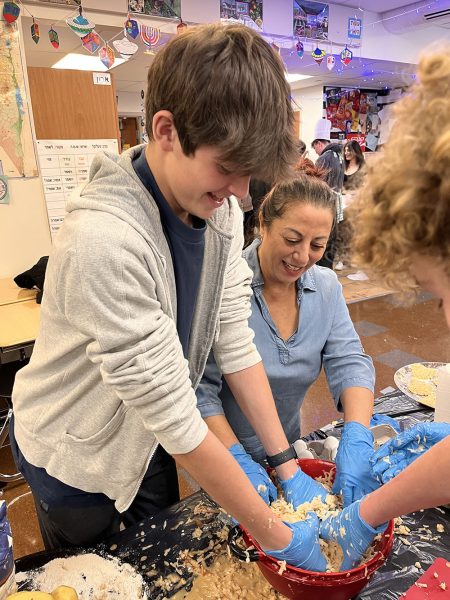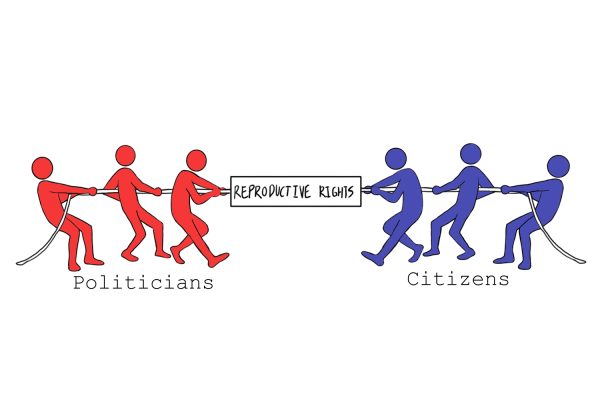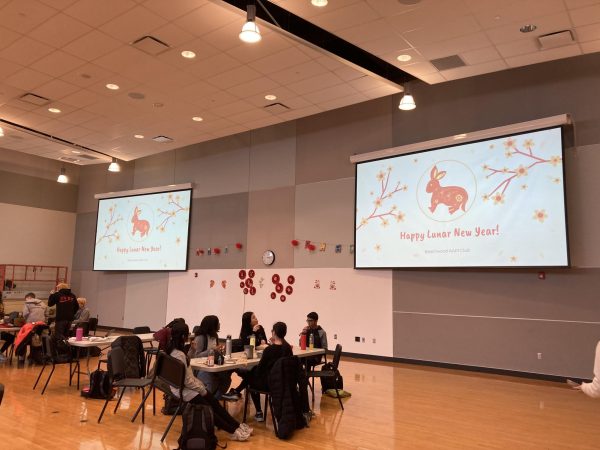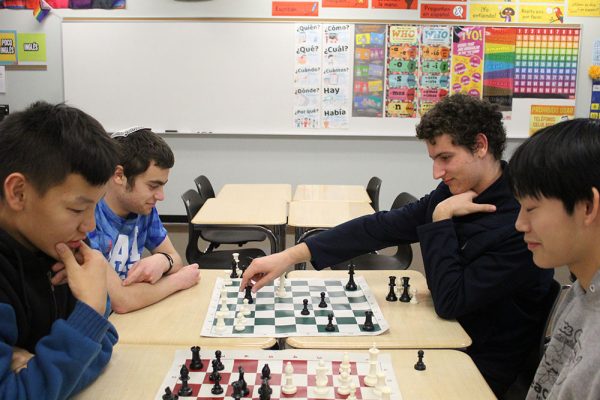Federal Move Towards Vouchers Could Cut Into School District Budgets
Ohio’s Jon Peterson Scholarship is a Voucher Program That Increases Options for Families of Kids With Disabilities. Students Can Go to a Private School, and Public School Funding Goes With Them.
Betsy DeVos was confirmed by the Senate on Feb. 7 to the position of Secretary of Education, with the tie-breaking vote cast by Vice President Mike Pence.
At her confirmation hearing DeVos demonstrated a lack of knowledge about the Individuals with Disabilities Education Act (IDEA), the federal law that ensures that every student with a disability receives a free and appropriate education.
“I think [education for people with disabilities] is a matter that is best left to the states,” she said.
According to a 2010 report published by the U.S. Department of Education, IDEA was integral to improving outcomes for people with disabilities. Prior to 1975, when the original version of the law was signed, people with disabilities had little access to typical education classrooms, were unlikely to gain employment and many wound up in institutions.
Many special education advocates expressed concern over DeVos’ apparent lack of interest in enforcing federal protections for people with disabilities.
Michael Kirkman, Executive Director of The Ohio Disability Rights Law and Policy Center, is one such advocate.
“[The organization was] concerned about the statement she made that appeared to show a lack of understanding about IDEA and the role of the federal government in enforcing IDEA and funding services,” he said.
Kirkman said his organization, which defines its mission as “[advocating] for the human, civil and legal rights of people with disabilities in Ohio,” has already started working with Ohio state officials on what to do if the federal government were to withdraw protections for people with disabilities.
[The organization was] concerned about the statement she made that appeared to show a lack of understanding about IDEA and the role of the federal government in enforcing IDEA and funding services.
— Michael Kirkman, Executive Director of the Ohio Disability Rights and Policy Center
“The strategy that we are using… is to talk to state officials of their independent obligations to [educate special needs children],” Kirkman said. “Because there are best practices, because it’s the right thing to do, because IDEA requires them, [whatever the case may be]… If anything is going to regress back to the states then [we explain what they] need to be doing.”
Kirkman explained that after her confirmation hearing, DeVos went on to write a letter to Congress that better demonstrated her knowledge of the federal law.
“[In the letter, DeVos wrote that] she anticipated vigorous enforcement of [IDEA] by the federal Department of Education,” Kirkman said. “And so we are going to take her on her word on that and hold her to those promises.”
DeVos is a billionaire philanthropist with a long history of advocating for school choice in her home state of Michigan. School choice means vouchers and charter schools, programs that encourage spending public money to educate children in private schools. She became known through her advocacy for voucher programs and her family’s generous contributions to the Republican party, which she agreed could be near $200,000.
Supporters of school choice argue that vouchers and charter schools are good for students with disabilities because they give more options when public schools fail to meet their needs.
Critics argue that parents who send their kids to private schools under such programs are often asked to give up their rights in exchange for choice.
Republicans in Congress have already moved to support school choice by introducing HB 610, the “Choices in Education Act of 2017”, which would convert federal education funding to block grants to the states and would require some of that money to be sp
Since 2012, Ohio has offered vouchers for special needs students in the form of the Jon Peterson Scholarship, which offers public money to families to be spent towards the education of a qualifying student with a disability.
The scholarship is tiered based on the type of disability and level of need, as determined by the Ohio Department of Education, not to exceed $27,000.
“Parents get funding… and they can do whatever they want with that money,” school psychologist Kevin Kemelhar explained. “They can hire tutors, speech and language pathologists [and] pay tuition.”
Kemelhar describes a program that is much like one of DeVos’ voucher programs. According to Beachwood Schools District Treasurer Michele Mills, the Jon Peterson scholarship costs the district $373,486 annually for the 34 students who use it.
Beachwood School System provides an ETR (Evaluation Team Report) and IEP (Individualized Education plans) for special needs students who utilize the Peterson scholarship.
Kemelhar estimates that he spends an average of ten hours per ETR. Special education teachers who spoke to The Beachcomber estimate they spend an average of eight hours per IEP. The district is not reimbursed for these costs.
Additionally, school staff provides ETRs for special needs students at private schools in the district, even if the student does not reside in Beachwood.
“Anyone who suspects [a student might have a disability] at one of those schools deals with us,” Kemelhar said.
“If they live in Beachwood [the school district] also does the IEP if they need special [education],” he said. “If they don’t live in Beachwood… that district does their IEP. Our responsibility ends after the evaluation if they don’t [go to] Beachwood [schools].”
According to Broderick, the cost of administering these services fluctuates with the child’s needs.
“Actual costs [of testing] differ depending on many factors,” she wrote. “…including the type and severity of the disability, the cost of the service providers, staff, and special equipment or instructional supplies, and the amount of services that a student might receive in a private school versus a public school setting.”
According to Mills, the average cost to educate a student with no special needs is $13,849 per student, which excludes transportation, operations, and food service. The cost to educate a child with special needs, however, can vary.
“Special education costs fluctuate dramatically depending on the student’s disability and program placement,” she wrote in an email. “We have students who cost the district almost $100,000 and others who cost far less depending on the services they receive. For example, if a student needs a one-on-one aid, that adds significantly to the cost of educating that student. Some students just need speech services.”
According to Beachwood Schools District Treasurer Michele Mills, the Jon Peterson scholarship costs the district $373,486 annually for the 34 students who use it.
“The purpose of a special education program is to tailor the services to the student’s special needs,” Broderick said. “So the programs are as unique as the students’ needs are.”
According to the IDEA, this is what every public school system is required to do.
“Children with disabilities [must] have available to them Free Appropriate Public Education (FAPE) that emphasizes special education and related services designed to meet their unique needs and prepare them for further education, employment and independent living,” the law states.
“We are required to, and we want to provide services specific to all of our student’s needs,” Broderick said. “So the programs change based on the student’s needs that we are servicing in any given year.”
Broderick is proud of Beachwood’s program for special needs students.
“The right attitude from our staff and the right resources… and the parent involvement… Those are the three things that make our program special,” she said. “But it’s even more than the resources, the emphasis is really on the staff. You can have all the resources in the world, but if you don’t have the right attitude, and you don’t care, and you don’t work openly and collaboratively… then I don’t think you’d get the same results. ”
If DeVos successfully implements new school choice options for special needs children, some will see it as a way for special needs families to have access to better services, others will question whether students with disabilities will continue to be protected, but one thing is likely: increased school choice will cost school districts more money, and Donald Trump’s Dept. of Education is not likely to replenish those funds.
“We really don’t know what [DeVos’] policies are going to be,” Kirkman said regarding the future of special needs education under DeVos. “I think that people are apprehensive, partly because of her hearing, partly because of what they see as her inexperience with public schools and children with disabilities… [in addition] there is just a general sense that… this [new] administration will reduce funding for domestic discretionary programs which includes special education.”
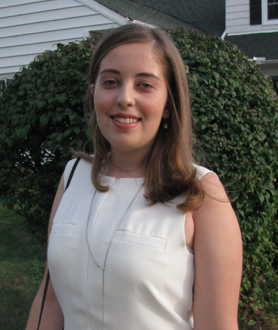
Senior Dalia Zullig had been the Online Editor-in-Chief for three years and is now the Editor-in-Chief. She enjoys writing features the most and runs...



